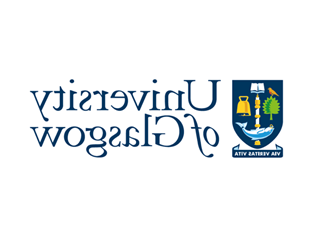Researchers from the University of Glasgow are contributing to three new innovative 5G connectivity projects which have received UK government backing.
The projects are among a total of 19 from across the country which are sharing £88m in new funding from the UK government’s Open Networks Ecosystem (ONE) competition.
The ONE competition helps deliver on the UK’s ambition to be a global leader in telecoms research and development, through investment in cutting edge open hardware and software.
Each of the projects aims to demonstrate the reliability and feasibility of Open Radio Access Network (RAN) technologies and showcase their role in delivering resilient and future-proofed connectivity to UK citizens and businesses.
The funding will enable the successful projects to develop and demonstrate a range of innovative technological solutions to improve connectivity in places with some of the biggest demand on mobile services.
These include busy locations like cities, airports, stadiums, tourism hotspots or large venues where many people use their devices simultaneously, posing a challenge for mobile networks to handle high levels of traffic.
The ONE competition was designed to demonstrate how this new way of building mobile networks can deliver fast, dependable connectivity in busy places where many people need wireless connections. Instead of using only one company’s equipment, Open RAN enables different companies’ technology to work together, which can make the network better and more flexible.
The projects will initiate trials of open 5G networks across the country, including Glasgow. The University of Glasgow is also home to the Scotland 5G Testbed, in partnership with the Scotland 5G Centre and the University of Strathclyde.
The projects supported by the University of Glasgow are:
- BEACH (Worthing), which brings together Dense Air Limited, West Sussex County Council, Radisys UK Limited, the University of Glasgow, Sitenna and VMware UK Limited, which has received £8,990,595 in funding.The project will implement an energy efficient shared mobile network responding to increasing user demand in Worthing, a popular south coast holiday destination.The project will implement a shared cellular 4G/5G small cell solution, which will include intelligent network power management capable of flexing capacity in response to seasonal fluctuations in user demand.
- ON-SIDE (Open Network Shared Spectrum Innovation and Design Environment), led by Cisco with the support of the University of Strathclyde, Glasgow City Council, AMD, the University of Glasgow, BBC, Neutral Wireless Ltd. and Scottish Wireless Ltd, which has received £1,694,542.The ON-SIDE project will address key challenges associated with deploying private 5G StandAlone networks operating in Shared Access radio spectrum, such as obtaining suitable spectrum licences and affordability of kit, while supporting the UK government and Ofcom’s broader telecoms diversification and spectrum management strategies.
- SCONDA (Small Cells ORAN in Dense Areas), supported by AWTG, Three, Boldyn, University of Surrey, PI Works, The Scotland 5G Centre, the University of Glasgow and Accenture, which has received £9.1m in funding.
Running until March 2025, the projects are part of the UK government’s Open Networks Research and Development Fund, dedicated to building secure and resilient communications infrastructure and enhancing competition and innovation within the 5G telecoms supply chain.
The University’s contributions to the projects will be led by Professor Muhammad Imran of the James Watt School of Engineering.
Prof Imran, who leads the Communications, Sensing and Imaging research group, said: “I’m thrilled to be part of the three winning projects – BEACH, SCONDA, and ON-SIDE – in the UK government’s ONE competition.
“Together with our partners, we are driving innovation to ensure resilient, secure, and competitive networks, advancing the UK’s goal of carrying 35% of mobile network traffic over open RAN architectures by 2030.
“The University of Glasgow is at the forefront of this transformative journey, contributing to a brighter technological future.”
Source: DIGIT

